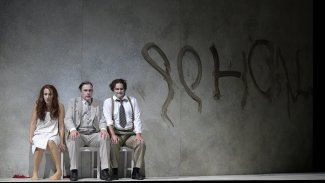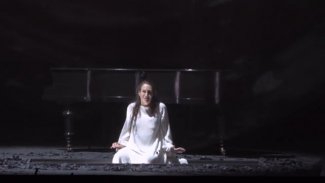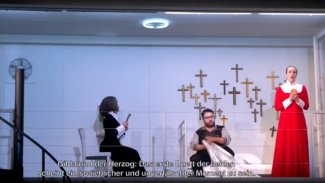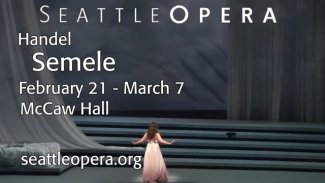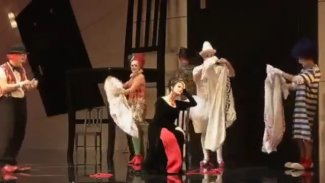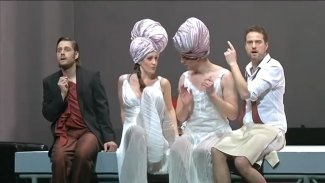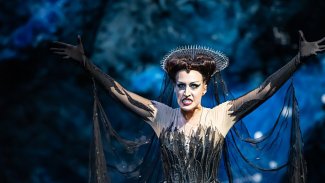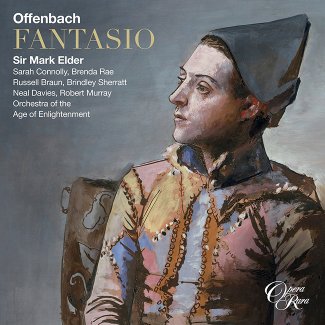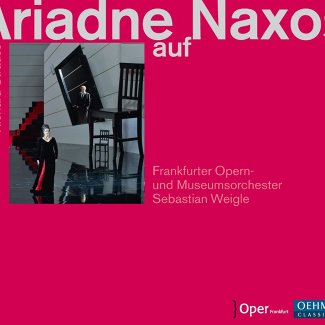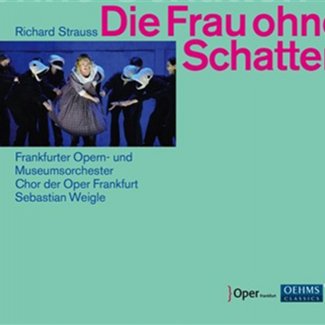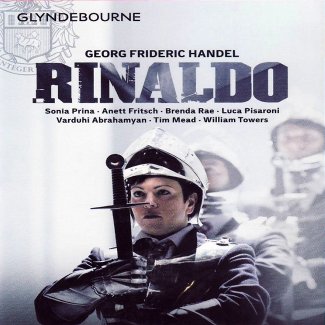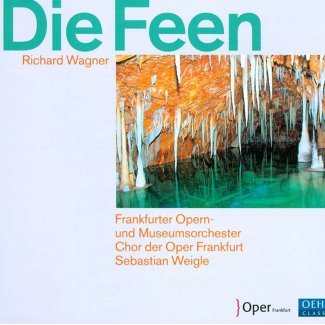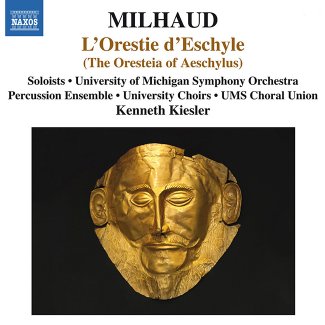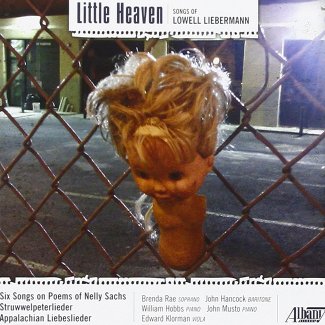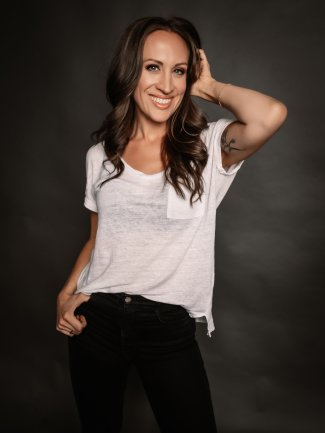
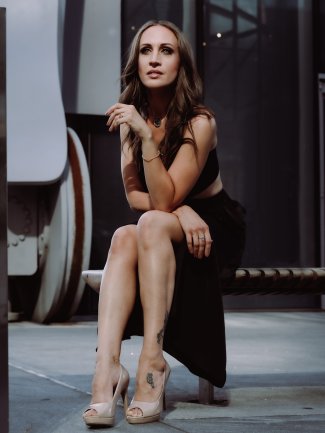
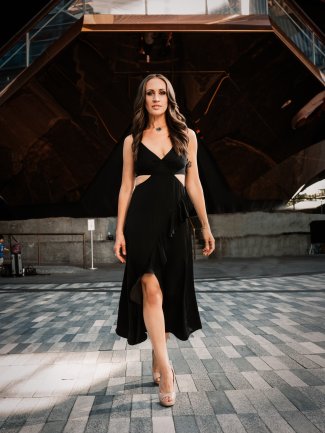
Brenda Rae
“Rae’s coloratura easily conquers the stratosphere”
Die Deutsche Bühne, November 2024
Dazzling coloratura and an unflinching dramatic commitment to the eclectic roles she brings to life, Brenda Rae continues to triumph on the world’s leading stages. This season is no exception and brings important new challenges at Teatro Real and Palau de la Musica where she sings the role of Petra in the world premiere of Francisco Coll’s setting of Ibsen’s An enemy of the people. Meanwhile at the Grand Theâtre de Genève she embraces the surreal world of Frank Zappa’s 200 Motels making its Swiss premiere. Back home in the United States, Brenda Rae returns to her bel canto roots as Rossini’s Madame Cortese (Il viaggio a Reims) for Opera Philadelphia and as Donizetti’s high-flying eponymous Marie (La fille du regiment) for Boston Lyric Opera.
Recent European highlights include Brenda Rae’s long-awaited return Oper Frankfurt as Lulu in Nadja Loschky’s new production of Lulu, conducted by Thomas Guggeis, as well as Aminta in Jan Philipp Gloger’s new production of Die schweigsame Frau for Staatsoper Unter den Linden under Christian Thielemann. Elsewhere, Brenda returned to the role of Gilda in Rigoletto both for Deutsche Oper Berlin under Michele Spotti, and Opernhaus Zürich conducted by Andrea Sanguineti.
Show More
Her strong relationship with Bayerische Staatsoper has seen her in the title role in Claus Guth’s new production of Semele conducted by Gianluca Capuano, as Konstanze (Die Entführung aus dem Serail) under Ivor Bolton, and Zerbinetta (Ariadne auf Naxos) on tour to Hong Kong. In Paris, Brenda returned to the Opéra Bastille most recently for two productions, as the title role in Lucia di Lammermoor under Aziz Shokhakimov and Ophelia (Hamlet) conducted by Thomas Hengelbrock. In Vienna, Rae continued her reign as the Queen of the Night (Die Zauberflöte) at the Wiener Staatsoper under Betrand de Billy and returned as Norina (Don Pasquale) conducted by Francesco Lanzillotta and latterly as Amina (La Sonnambula) under Giacomo Sagripanti to rapturous critical acclaim.
As a former member of the ensemble of Oper Frankfurt, Brenda Rae amassed an impressive repertoire including Elvira (I puritani), Violetta (La traviata), Zdenka (Arabella), and Zerbinetta (Ariadne auf Naxos) which has since become one of her most celebrated roles, leading to house debuts at Staatsoper Berlin, Hamburg and Munich. Elsewhere, Rae debuted in William Kentridge’s production at English National Opera as Lulu (Lulu), Opéra national de Paris as Anne Trulove (The Rake’s Progress), and Glyndebourne Festival as Armida (Rinaldo), which was part of the BBC Proms and released on DVD by Opus Arte. More recent seasons have brought debuts for the Royal Opera House, Covent Garden and Salzburg Festival, respectively, as the Queen of the Night, as well as her critically acclaimed return to Teatro Real Madrid as the title role in Christopher Alden’s new production of Partenope under Ivor Bolton.
Brenda Rae made her US operatic stage debut at the 2013 Santa Fe Opera Festival as Violetta and has since returned as Norina (Don Pasquale), both Mme Vladimirescu and Mme Herz (The Impresario), Cunegonde (Candide) and Lucia (Lucia di Lammermoor). Brenda’s continued collaboration with Harry Bicket has brought her house debut at Lyric Opera of Chicago as Ginevra (Ariodante), and performances as Semele (Semele)on tour with The English Concert to London, Paris and New York. At the Metropolitan Opera, Brenda returned as both Zerbinetta (Ariadne auf Naxos) conducted by Marek Janowski and Ophelia (Brett Dean’s Hamlet) under Nicholas Carter, which received unanimous praise from the international press.
An experienced recitalist, Brenda is a regular guest at the celebrated Schubertiade in Schwarzenberg and at Wigmore Hall in London where she returned recently with a programme of Schubert and Strauss accompanied by Jonathan Ware. Brenda Rae appears on several recordings including Wagner’s Die Feen and Ariadne auf Naxos (both on Oehms Classics), Milhaud’s The Oresteia of Aeschylus (Naxos, nominated for a Grammy award), Lowell Liebermann’s Little Heaven (Albany Records) and Offenbach’s Fantasio released by Opera Rara.
Contacts
European Management
Gallery
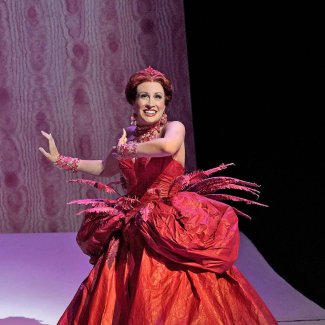
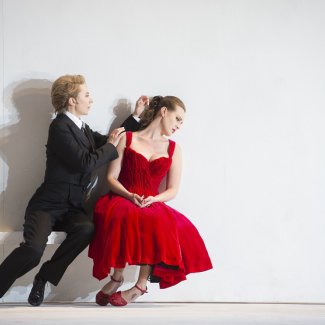
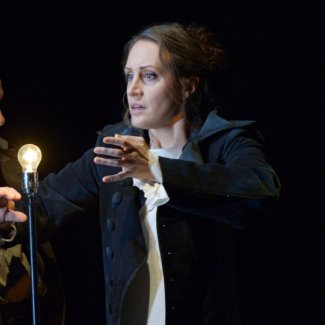
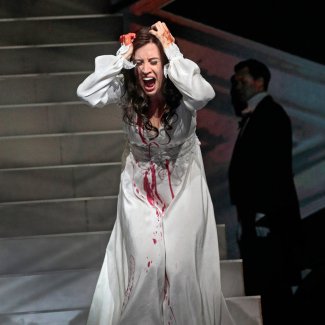
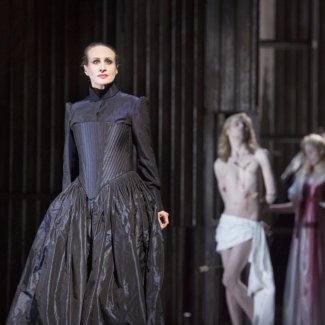
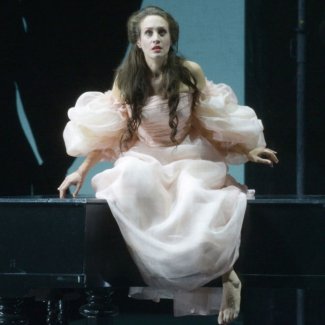
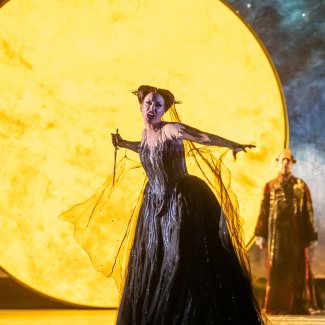
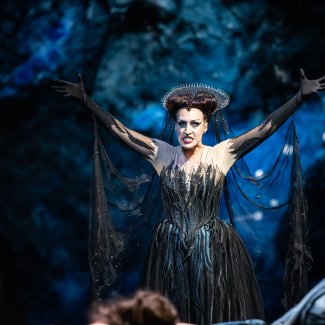

“In this sense, Brenda Rae’s performances as Petra, the daughter of the doctor who is the enemy of the public, was simply exemplary, with brilliant, very well emitted and sonorous highs.”
“As Petra, Brenda Rae deployed a pristine high register, her aria a delight thanks to her sensitive phrasing.”
“Brenda Rae was warm here [as Petra] and outstanding in the constant high notes that were demanded of her…”
“Brenda Rae was also excellent as Petra, with astonishingly well-calibrated high notes and breath control, which undoubtedly allowed her to take ownership of a role that was marked by extreme twists of character, dynamics, and vocal range”
“Brenda Rae demonstrates winning versatility as Aminta, charmingly voiced as herself, but contriving to be alluringly demure when presented to Morosus as ‘Timidia’, a possible silent wife, and amusingly explosive after their pretend marriage.”
“Here, her vocal glitter and precision were matched, indeed exceeded, only by her humanity.”
“Brenda Rae traced Aminta’s metamorphosis from timid and hesitant to veritable fireball, starting off with placid pianos and opening up to vocal pyrotechnics in the last act.”
“Opposite him was Brenda Rae, who I last heard in 2023 as Lucia di Lammermoor in Paris. Needless to say, her bel canto skills served her perfectly in the role of Gilda. Her “Caro nome” was met with thunderous applause that lasted for what felt like an eternity.”
“Brenda Rae’s soprano as Gilda convinces with technical polish.”
“Brenda Rae offers complete playful and vocal commitment for Lulu. Rae’s coloratura easily conquers the stratosphere”
“Brenda Rae… masters the title role with vocal power and brilliance, even in the murderous coloraturas.”
A “… maximally agile, light, silvery soprano…”
“Brenda Rae embodies this inexplicable complexity of the title character with nuanced acting and, above all, musicality. She can extract from her bright and confident coloratura soprano the embers of passion as well as cutting coldness.”
“In what is perhaps the most beautiful soprano role in the entire Mozart repertoire, Brenda Rae convinces with a real sense of style, diction, and nuances of dynamics and colours that bring the character to life”
“an enthralling waltz with a cadence full of well-executed high notes”
“The coloratura flows in majestic elegance like the Danube, her voice shimmers nobly, glittering and sparkling like the Ligurian sea in the moonlight and the additional decorations that Mrs. Rae incorporates are not only flawless, they never seem mannered or artificial, but relaxed and refreshing throughout the evening”
“With her clear and virtuosic voice, she masters the musically demanding coloratura of Semele with a certain ease. Her stage presence and interpretation of the role are remarkably good”.
“It is necessary to highlight the performance of the American soprano Brenda Rae, who in her debut role, demonstrated a way of singing and stage craft only within the reach of a singer at the point of optimal personal artistic maturity”
“…during which she performed incredible vocal pyrotechnics with unprecedented coloraturas that unleashed the enthusiasm of the audience with frenzied applause”.
“In the title role, Brenda Rae fascinates us all treading the coloratura tightrope, so that just listening to her takes your breath away and you easily believe her rise to madness”.
“In Brenda Rae, Guth has an overwhelming soloist who implemented the extremely demanding characterisation without sparing, and brilliantly mastered almost a dozen da capo arias with the highest vocal brilliance, moving us all with her sparkling coloraturas”.
“No one more so than the soprano Brenda Rae as Semele, who rarely leaves the stage and is given one of the show’s most athletic arias, “Myself I shall adore.” As an actor, she sympathetically traced a downward plunge from hesitation to ecstasy, then harried despair and hollowed catatonia”
“For Norina, you need a voice like Brenda Rae’s, light, colorful, capable of virtuosity, firmness, character. This performance also convinces thanks to the acting talent and the beautiful presence of the American soprano”.
“As it should be, the highlight of her performance was the “mad scene.” It showed her vocal qualities, a strong middle register, and ability to color the voice by adapting it to the several sudden changes of emotions of the character. Strong and projected high notes, like the high C, “Oh! Gioija che si sente,” and a showcase of vocal pyrotechnics: staccato high notes, fast scales, pianissimo high register, and clean trills. She performed the traditional cadenza and coronated it and the cabaletta, “Spargi d’amaro pianto,” with two bright and secure high E‑flats. But, her incarnation of the psychotic young girl, who just murdered her husband and was constantly hallucinating, was memorable. Not only could the soprano go through different emotions with truth and projection, but she also maintained the “character state” throughout the scene. And this is something that very few sopranos manage to do. Her “mad scene” was really hair-raising.”
“Brenda Rae as Maïma [was]…simply splendid. Rae, a seasoned Queen of the Night and Zerbinetta, is a powerful, agile and charming coloratura soprano who visibly enjoyed the acting.”
“Brenda Rae as Maïma radiated charm and wit with her coloratura”
“Brenda Rae shines as Maïma with coloratura and trills, and knows above all where she can reign back the voice….Rae ensures the most musically intense, intimate moments of the evening”
“Brenda Rae as a cool beauty and fury with a clear coloratura soprano at the highest altitudes”
“Brenda Rae’s angry “revenge aria” as Queen of the Night, with the insane coloraturas, is furious and frighteningly good.”
“Rae’s voice is ravishingly beautiful, especially in the uppermost notes of her range. Her Zerbinetta wasn’t so much a coquette as a savvy, lusty woman of the world with pluck and heart. Her showpiece aria, “Großmächtige Prinzessin … So war es mit Pagliazzo,” was dispatched with astonishing ease.”
“Sensual and casual, Brenda Rae expresses herself with a velvety voice and a delicate control of the ‘yarns’. She’s an extremely incisive actor; the way she moves on the stage highlights all the facets of the character. She delivers her closing aria with freshness, gracefulness, and a hint of showgirl.”
“Brenda Rae has a slender figure and tremendous ease that allows her to take on the many choreographed passages of the production with breathtaking brilliance. Like many artists from across the Atlantic, she is a show-woman. But above all, Brenda Rae is a singer, with a round, heady tone that is perfectly practiced in the art of baroque vocalizations. In the role’s many arias, her instrument never seems to struggle, whether it is the virtuoso “Voglio amare insin ch’io moro” which she interprets in the manner of a cabaret number, dressed in an elegant tuxedo, or the arietta “Qual farfaletta” in which she dialogues with the violin with a remarkably strict tempo. At the end of the last act, Rae sings “Si, scherza, si” alone on stage, curtain closed before she rises for the drama’s conclusion: isolated in the spotlight, like a jewel in its setting, her voice unfolds all its delicacy and shows how sensitive the singer is to nuance and expressiveness.”
“Rae’s Ophelia, a vision of loveliness and innocence in pale peach flounces, was unhinged from the beginning and it was but a slight descent into total madness and suicide. With her mesmerizing stage presence and crystal-clear voice, Rae, covered in dirt, dressed in tatters and clutching a clump of willow branches, galvanized the audience’s attention in Ophelia’s extended mad scene.”
“Ophelia’s mad scene, with Rae in mud-soiled underwear, matted hair and a men’s tailcoat, pounding on her chest as she sings to make the notes tremble, is eerie without overstatement.”
“Brenda Rae as Adèle also shone with stupendous coloratura phrases.”
“Yet there are some very sparky performances too…Brenda Rae menaces her vividly as the Queen of the Nigh”
“Brenda Rae’s astonishingly accurate, far from entirely unsympathetic Queen of the Night impressed similarly.”
“With a hotline to wrath and vengeance, Brenda Rae’s Queen of the Night was excellent in her first aria and then swept all before in her in a stupendous ‘Der Hölle Rache’”
“And best of all, Brenda Rae as Zerbinetta: handling her soprano like a sparkler, and etching superheated, multicoloured spirals of sound on the evening air.”
“However, it was Rae’s coquettish, radiant Zerbinetta whose aria – as usual – stole the show.”
“Brenda Rae sings Zerbinetta with glittering voice and sparkling coloratura, leavened with a twinkling touch of humour”
“Everything was in the most beautiful proportions [including] the finely agile voice of Brenda Rae…”
“Above all, Brenda Rae delighted the audience [with] a focused, brilliant interpretation. The soprano enchanted with wonderfully intimate bends of her great vocal instrument, as well as with colorful and securely placed top notes of downright stunning beauty. As bright as silver, the voice shone effortlessly and precisely above the ensembles and gave the part wonderfully internalized, sweeping Bellini cantilenas.”
“The American Brenda Rae is also a debutant at the Teatro Real and surpassed herself in her second act arias in which the comic gives way to the resolving romanticism of Nemorino and Adina.”
“The brightly alluring Brenda Rae was alive to the varied emotions within Ginevra’s music, from the giddy enchantment of ‘Vezzi, lusinghe, e brio’ to the heart-stopping poignancy of ‘Il mio crudel martoro’.”
“She duly made ‘Myself I shall adore’ a captivatingly glamorous showpiece, sprinkling it with just the right amount of diva self-parody.”
“Ms Rae brought plush radiance to the confessional aria and brilliant, agile singing to the showpiece ‘The Morning Lark’.”
“In the role of Semele, Brenda Rae was exceptional!…displaying her magnificent technique, especially in the famous aria of Act III ‘Myself I shall adore’”
“her timbre unfolds beautifully to reveal her virtuosity, masterful melismas, and a remarkable ability to emit the quietest of sound, almost with the mouth closed. Her clear tone creates beautiful piani in the a cappella sleep scene, before reaching its peak in ‘Myself I shall adore’, where she demonstrates vocally brave coloratura passages sung in full voice.”
“The casting for this production could hardly have been better. In her Lyric Opera debut as Ginevra, Brenda Rae lit up the stage with her big, bright soprano voice, handling with ease both the high-flying vocal acrobatics and the dark emotions this role demands.”
“First there is Brenda Rae as Elvira [I puritani]. With intense tone and crystal-clear, breakneck coloratura she credibly portrayed the inner turmoil of the young woman.”
“in her debut as Elvira in I puritani, Brenda Rae was beautiful in every way.”
“Brenda Rae’s Cunegonde was a showstopper…her voice cut like a knife once her range hit the stratosphere.”
“Brenda Rae thrills in Hendrik Müller’s new production of Verdi’s Rigoletto in Frankfurt…Shortly before leaving Frankfurt’s opera ensemble, the soprano Brenda Rae once more proves to be perfect casting, not only as the girl with enchantingly effortless coloratura …but also as the determined young woman.”
“At the head of the cast is soprano Brenda Rae. She displayed fine musical sensitivities, fluent technique and dramatic flair in her depiction of the [Lucia]…She held the audience rapt in the palm of her bloody hand.”
“her mad scene makes this production…she both acts and sings this exceptionally difficult aria with a theatrical sense of insanity quite stunning in its depth of expression.”
“Equally exceptional is Brenda Rae, leading her Gilda from girlish chastity to glowing desire and the sobering perception that love can take a brutal toll. She savours the famous “Caro nome” aria with all its virtuosic subtleness in every sense…How versatile, touching and fascinating this wonderful voice is!”
“Brenda Rae as Gilda: contrasting the chaste and cool figure she plays, her soprano excels with variable nuances of warmth, a rich palette of piano colours and a meticulous negotiation of the coloratura passages.”
“Soprano Brenda Rae, a discover for many, became a constant source of vocal allure with the kind of dramatic instincts that turn a flashy cadenza into an intense character study.”
“A stellar performance by soprano Brenda Rae, in both her company and role debut as Amenaide, affirms her consummate mastery of Rossini’s elaborate ornamentations and her engaging acting skills, as she constantly astonishes with pure mellifluous voice, flawless executive of extended passages of coloratura, and profound emotional commitment to the compelling role of an honourable woman who would sooner give up her own life than betray her true love.”
“Brenda Rae’s Lulu, tirelessly busy and vocally spot-on, is the enigmatic centre of it all, very much the blank slate on which men can project their own fantasies, almost oblivious to her own allure.”
“Brenda Rae in the title role is less of a rapacious flirt than conventionally played, but this is also her strength, enabling us to see the character as a flesh-and-blood woman; her singing of the part is a tour de force.”
“English National Opera has assembled a superb cast, led by soprano Brenda Rae, making her ENO and role debut as the charismatic Lulu. Athletic and seductive, innocent and predatory, Rae captures the facets of the woman who exploits and is exploited by the men in her life.”
“Excellent Brenda Rae makes a suitably capricious femme fatale”
“Brenda Rae makes a sensational house debut in the title role, one of the most challenging in the repertoire. The American soprano husbands her resources early on, mindful of the extremes that lie ahead; yet she never undersings and her characterisation is dynamite. Fearless, probing and compelling, radiant of voice and beauty, she is the complete Lulu.”
“I doubt that Brenda Rae’s Aminta could be bettered in any theatre today. Just as sure of note and line as the orchestra and with greater, contrasting warmth, especially at those wonderful revelations, through the disguise of Timidia, of the fundamental humanity of Aminta, this was a performance to savour.”
